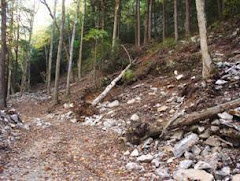Sunday, June 28, 2009
Tennessee: Green issues? Call it a split
Both environmentalists and business interests claim legislative victories.
By- Andy Sher
http://timesfreepress.com/news/2009/jun/28/tennessee-green-issues-call-it-split/?local
NASHVILLE — Tennessee environmental groups and business interests clashed repeatedly over water and other environmental issues in this year’s General Assembly, but both sides are walking away claiming some significant victories.
“We started out with 14 bad bills, and we got half of a bad one,” said Renee Hoyos, executive director of the Tennessee Clean Water Network.
Wayne Scharber, vice president for environmental regulation at the Tennessee Chamber of Commerce & Industry, said, “I think we did well” in the legislature this year, calling it a “responsible year.”
Environmentalists say one of their major victories was their unexpected, last-minute success on the House floor in blocking coal industry-pushed legislation to relax standards for the release of selenium into streams and rivers.
“The reality is I don’t think the people of Tennessee are really excited about putting pollutants like selenium in water and telling them it’s OK,” said Tennessee Conservation Voters Executive Director Chris Ford.
Selenium, which can be healthful in tiny amounts, is toxic in large doses. Both sides quarreled over the safety of substituting current state standards for other standards proposed but never adopted by the U.S. Environmental Protection Agency under the Bush administration.
“Various people have got different perspectives about it,” Mr. Scharber said. “They (critics) want to react to it in an extreme situation rather than analyzing what are the real facts about it.”
The selenium bill failed on a 49-41 vote on the House floor. It needed 50 votes to pass.
“I can understand and certainly empathize with people who want to protect the environment, but it’s not just like there’s something under every rock that will kill us,” said Rep. Richard Floyd, R-Chattanooga, a House Conservation and Environment member who supported the bill. “The amount of selenium that we proposed was not out of line.”
Meanwhile, a coalition compromising the Tennessee Chamber, developers, road builders, the coal industry and the Tennessee Farm Bureau Federation, is celebrating passage of legislation revising what is classified by the state as a stream subject to regulatory oversight.
One section of the bill, signed into law last week by Gov. Phil Bredesen, provides property owners, developers and farmers more guidance on when a watercourse is considered a stream and when it is a “wet weather conveyance” that flows only in response to runoff from precipitation.
“That was great,” said Chuck Laine of the coal industry-lobby group FACTS, noting it would “let us determine what’s a ditch and what’s a stream. If it supports aquatic life, it is a stream.”
But environmental groups are irate over a provision that allows outside hydrologists hired by property owners to decide whether a watercourse is a stream or a wet weather conveyance. The state Department of Environment and Conservation would have 30 days to review the hydrologist’s determination and another 30 days to raise detailed objections and reject it.
“The mainstream environmental community opposed this all the way through. We just lost,” said Tennessee Conservation Voters contract lobbyist Stewart Clifton, calling the hydrologist provision a “crazy scheme” to let privately paid consultants direct state policy.
Mr. Scharber, however, said the issue has “been blown out of proportion in saying that just by hiring a person, you automatically have a right of that being absolute. It’s not.”
“We were arguing a point the department was not being responsive, and obviously, if you look at some of the time frames spent on rendering decisions on applications over the years on these permits ... they were not being as timely and responsive as they should be.”
Rep. Floyd, meanwhile, said he was pleased by passage of legislation aimed at better protecting state parks from “rock harvesters.” The bill was brought in response to the stripping of rock from Cumberland Trail State Park near Chattanooga by Florida-based Lahiere/Hill Partnership, which owned the mineral rights to the land.
It redefines “mineral” to include stone when it is located on state land. The bill says rock miners must obtain a permit and post a bond assuring they will repair damage before they can begin mining on state property. Rep. Floyd said he wanted to include private property owners but he feared it could have caused the Bredesen administration-backed bill to fail as it did last year.
“I’m coming back this next year with bills to protect private landowners to work out something that would protect them like the state parks,” Rep. Floyd said. “I didn’t want to mess their bill up.”
Subscribe to:
Post Comments (Atom)


No comments:
Post a Comment